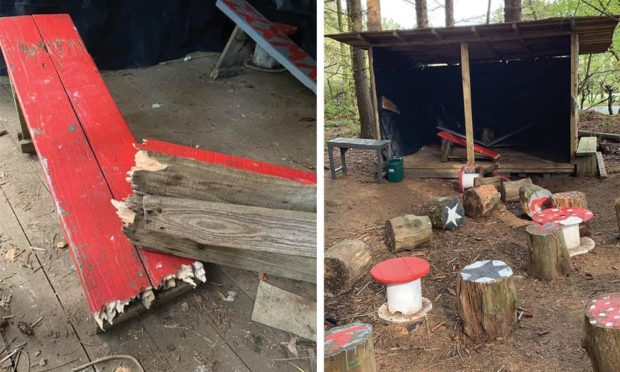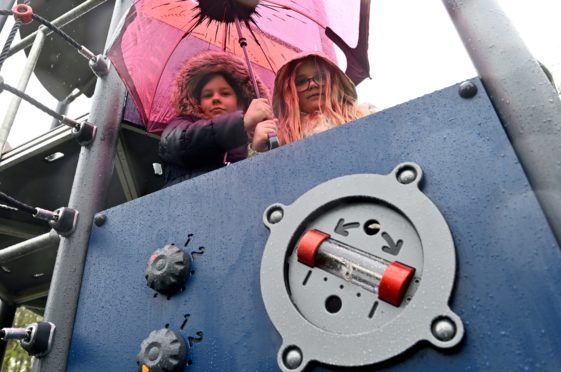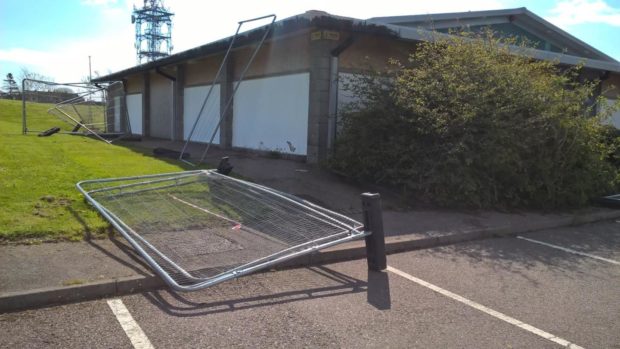A recent surge in anti-social behaviour in the north-east could be down to boredom and frustration with ongoing Covid-19 rules, according to a leading expert.
Vandalism has been reported at a number of community sites in Aberdeen and Aberdeenshire including the Den sensory playpark in Turriff and King’s Links golf course, while Northfield swimming pool was targeted seven times in nine days.
The Fairy Woods at Aden Country Park were also targeted, with children’s equipment wrecked.
Dr Sarah Henderson, a senior lecturer in Robert Gordon University’s school of applied social studies who has researched psychological problems associated with criminal behaviour, believes Covid-19 restrictions may be the root cause of the incidents.
Boredom and frustration at heart of problems
“It has probably got a lot to do with lockdown and the fact people haven’t got the same access to activities and meeting friends,” she said.
“That leads to issues of boredom and the loss of support systems because people are not able to hang out with others.
“I would say there is probably a large amount of frustration involved, but the other side of that is there is also the frustration in the community that this sort of incident is happening. It raises worry and fear – it’s the communities that suffer.”
“Opportunism is a huge part of it,” Dr Henderson added.
“There could also be an element of familiarity, and of wanting to spoil fun for people. It is something the community can use, a key resource, and that might attract some of the behaviour we have been seeing.
“Very often you will see places targeted, like schools or facilities such as parks – that could be because there is not the same level of security you would see at a private building. It’s easier to carry out anti-social behaviour in those places.”
Support vital for stopping incidents
Despite the recent rise in incidents, levels of vandalism have generally fallen over the last 10 years according to figures published by the Scottish Government.
With the lifting of coronavirus rules set to continue over the coming weeks and months, Dr Henderson is hopeful those responsible can harness their “boredom and frustration” in other ways.
She believes the perpetrators may also “grow out” of anti-social behaviour as they are able to socialise more.
“I think one of the key messages is despite everything that’s happening, levels of vandalism seem to be decreasing. That’s what government figures are suggesting,” she added.
“It does seem to go across a range of different age groups. If it is younger people, they tend to grow out of it – the peak age for criminal behaviour is generally around the mid teens to early 20s because after that people start to find other things like jobs and relationships.
“I would like to think that because things are starting to go back to normal, a lot of activities are starting up again and community facilities are opening. Hopefully that means we will see a reduction in these incidents.
“A lot of the time outlets like community groups or sports teams lead to these incidents stopping, because it gets people back in their normal routine. They are useful resources for young people to get that energy explored in a more positive way.
“A key issue that really helps in all sorts of criminal behaviour is support systems and friendship groups.
“I think now places have started reopening, people will be able to have more contact and that is a positive thing. Lockdown has really changed people’s ability to live their lives, and if you don’t have that social support you are going to get this level of boredom and frustration.
“I would hope that over the next period of time we will get to a more normal level of anti-social behaviour.”


